
Abel Gance
출생 : 1889-10-25, Paris, France
사망 : 1981-11-10
약력
Abel Gance was a French film director, producer, writer and actor. A pioneer in the theory and practice of montage, he is best known for three major silent films: J'accuse (1919), La Roue (1923), and Napoléon (1927).
He was born in Paris in 1889. In 1909, he acted in his first film. He also wrote scenarios, and often sold them to Gaumont. During this period he was diagnosed with tuberculosis, fatal at the time, but he recovered. In 1911, with some friends he established a production company, Le Film Français, and began directing his own films.
With the outbreak of WW I, rejected by the army on medical grounds, he started writing and directing for a new film company, Film d'Art until 1918, making over a dozen successful films. Charles Pathé underwrote his next film, J'accuse (1919), in which Gance confronted the waste and suffering which the war had brought.
In 1920, he developed La Roue. He brought an unprecedented level of energy and imagination to the technical realization of his story, employing elaborate editing techniques and innovative use of rapid cutting which made the film highly influential. The finished film ran for nearly nine hours, but was edited down for distribution.
In 1921, Gance visited America to promote J'accuse. He met D. W. Griffith, whom he had long admired. He was also offered a contract with MGM but turned it down.
He then embarked on his greatest project, a six-part life of Napoléon. Only the first part was completed, tracing his early life, through the Revolution, up to the invasion of Italy, but even this occupied a vast canvas with meticulously recreated historical scenes and scores of characters. The film was full of experimental techniques, combining rapid cutting, hand-held cameras, superimposition of images, and, in wide-screen sequences, shot using a system he called Polyvision needing triple cameras (and projectors), achieved a spectacular panoramic effect, including a finale in which the outer two film panels were tinted blue and red, creating a widescreen image of a French flag. The original version ran for around 6 hours. A shortened version received a triumphant première at the Paris Opéra in April 1927.
Throughout his life he kept returning to Napoléon, editing his footage, and as a result the original 1927 film was lost from view for decades. The dedicated work of the film historian Kevin Brownlow produced a five-hour version, still incomplete but fuller than anyone had seen since the 1920s. It was presented at the Telluride Film Festival in 1979, and the occasion brought a belated triumph to Gance's career, and made his name known to a worldwide audience.
In the assessment of Kevin Brownlow, "...[Abel Gance] made a fuller use of the medium than anyone before or since". As well as his multiscreen ventures with Polyvision, he explored the use of superimposition of images, extreme close-ups, fast rhythmic editing, and he made the camera mobile in unorthodox ways – hand-held, mounted on wires or a pendulum, or even strapped to a horse. He also made early experiments with the addition of sound to film, and with filming in color and in 3-D. There were few aspects of film technique that he did not seek to incorporate in his work, and his influence was acknowledged by contemporaries and later by the French New Wave film-makers.

Director
Abel Gance's 1971 sound edition of his epic 1927 'Napoleon', which contains much of the silent original, with new material shot and added in both 1965 and 1971, and with sound synchronization from both the 1932 reissue and this version.

BBC documentary on the long and flamboyant career of French filmmaker Abel Gance.

Screenplay
Duelist and poet Cyrano de Bergerac and musketeer d'Artagnan meet and team up to stop the conspiracy against King Louis XIII of France.

Director
Duelist and poet Cyrano de Bergerac and musketeer d'Artagnan meet and team up to stop the conspiracy against King Louis XIII of France.

himself
The life and work of Abel Gance as told by himself. Includes extracts from many of his films and considers his contribution to the cinema.
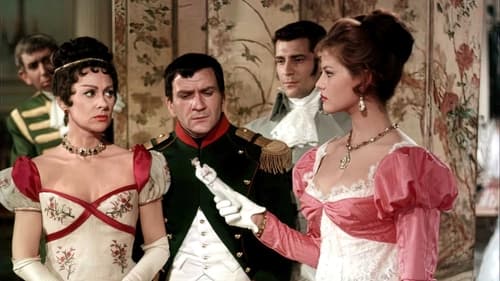
Writer
Napoleon Bonaparte crowns himself emperor and fights the English, Austrians and Russians in 1802.

Director
Napoleon Bonaparte crowns himself emperor and fights the English, Austrians and Russians in 1802.

Director
A portmanteau work in four segments,designed to illustrate the expressive possibilities of director Abel Gance,s creation, Polyvision, which preceded the American invention of Cinerama, and used three screens to present a drama of simultaneous images.

Screenplay
France, the beginning of the XIV century. Every night, Queen Margaret of Burgundy and her two sisters arrange orgies, to which beautiful nobles are invited. The young men were brought blindfolded, and after a night of love they were killed and their corpses thrown into the river, because the queen was afraid that her husband would learn about her adventures. One of her lovers managed to escape death. He knows the secrets of the queen, knows that she once gave birth to a son from him, claims that he has evidence that Margarita wanted to kill her father and blackmails her.

Director
France, the beginning of the XIV century. Every night, Queen Margaret of Burgundy and her two sisters arrange orgies, to which beautiful nobles are invited. The young men were brought blindfolded, and after a night of love they were killed and their corpses thrown into the river, because the queen was afraid that her husband would learn about her adventures. One of her lovers managed to escape death. He knows the secrets of the queen, knows that she once gave birth to a son from him, claims that he has evidence that Margarita wanted to kill her father and blackmails her.
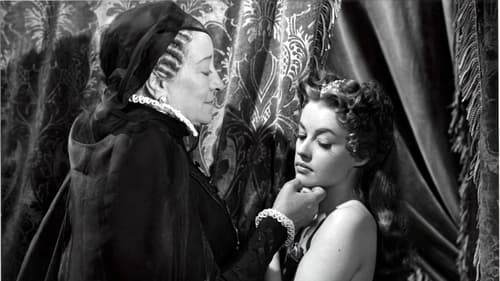
Writer

Writer
Out of love for an actress, Isabelle, the Baron de Sigognac joins a traveling troop en route to Paris. When an actor dies, he takes over his role: that of Captain Fracasse.

Director
Out of love for an actress, Isabelle, the Baron de Sigognac joins a traveling troop en route to Paris. When an actor dies, he takes over his role: that of Captain Fracasse.

Writer
Vénus aveugle (Blind Venus) is a 1941 French film melodrama, directed by Abel Gance, and one of the first films to be undertaken in France during the German occupation. Although the film is not set in any specified period, Gance wanted it to be seen as relevant to the contemporary situation in France. He wrote, "...La Vénus aveugle is at the crossroads of reality and legend... The heroine ... gradually sinks deeper and deeper into despair. Only when she has reached the bottom of the abyss does she encounter the smile of Providence that life reserves for those who have faith in it, and she can then go serenely back up the slope towards happiness. If I have been able to show in this film that elevated feelings are the only force that can triumph over Fate, then my efforts will not have been in vain."

Director
Vénus aveugle (Blind Venus) is a 1941 French film melodrama, directed by Abel Gance, and one of the first films to be undertaken in France during the German occupation. Although the film is not set in any specified period, Gance wanted it to be seen as relevant to the contemporary situation in France. He wrote, "...La Vénus aveugle is at the crossroads of reality and legend... The heroine ... gradually sinks deeper and deeper into despair. Only when she has reached the bottom of the abyss does she encounter the smile of Providence that life reserves for those who have faith in it, and she can then go serenely back up the slope towards happiness. If I have been able to show in this film that elevated feelings are the only force that can triumph over Fate, then my efforts will not have been in vain."
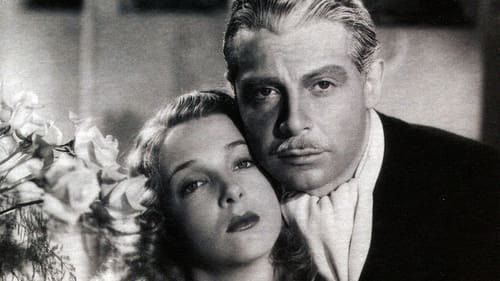
Scenario Writer
파리의 패션 디자이너 피에르는 부인의 죽음으로 인한 충격에서 헤어나지를 못한다. 딸과도 연락하기를 거부하며 고립된 삶을 살아가던 피에르는 어느 날 나이 어린 여자를 만나 지난날을 고백한다. 그리고 그녀와 새로운 로맨스를 시작한다. 1차 대전 종전과 2차 대전 개시 기간 동안이 배경이 작품으로, 아벨 강스의 저력을 느낄 수 있는 작품이다.

Director
파리의 패션 디자이너 피에르는 부인의 죽음으로 인한 충격에서 헤어나지를 못한다. 딸과도 연락하기를 거부하며 고립된 삶을 살아가던 피에르는 어느 날 나이 어린 여자를 만나 지난날을 고백한다. 그리고 그녀와 새로운 로맨스를 시작한다. 1차 대전 종전과 2차 대전 개시 기간 동안이 배경이 작품으로, 아벨 강스의 저력을 느낄 수 있는 작품이다.

Director
What was it about opera diva Grace Moore that attracted the attention of filmdom's top directors? Moore's 1937 American movie vehicle When You're in Love had been directed by Josef Von Sternberg; two years later, her French starrer Louise was helmed by no less than Abel Gance, who a decade earlier had revolutionized the "historical epic" genre with the awesome Napoleon. There was, however, little that was revolutionary in this cinemadaption of Gustave Charpentier's opera. Moore plays Louise, a poor seamstress who is led astray by the rakish Julien (Georges Thill). After falling from grace (no pun intended), our heroine is rescued by her understanding father (Andre Pernet), who demonstrates his forgiveness by singing to her (it is, after all, an opera). Though it played to enthusiastic crowds in both London and Paris, Louise turned out to be Grace Moore's final film; conversely, Abel Gance continued to make commercial potboilers well into the 1970s.

Director
The woman thief evades a young lady who is onto his game, but then tries his wiles elsewhere on a married woman by attempting to compromise and ruin the husband she is happy with.

Writer
After serving in the trenches of World War I, Jean Diaz recoils with such horror that he renounces love and personal pleasure to immerse himself in scientific research, seeking a machine to prevent war. He thinks he has succeeded, but the government subverts his discovery, and Europe slides with seeming inevitability toward World War II. In desperation, Diaz summons the ghosts of the war dead from the graves and fields of France to give silent, accusing protest.

Director
After serving in the trenches of World War I, Jean Diaz recoils with such horror that he renounces love and personal pleasure to immerse himself in scientific research, seeking a machine to prevent war. He thinks he has succeeded, but the government subverts his discovery, and Europe slides with seeming inevitability toward World War II. In desperation, Diaz summons the ghosts of the war dead from the graves and fields of France to give silent, accusing protest.
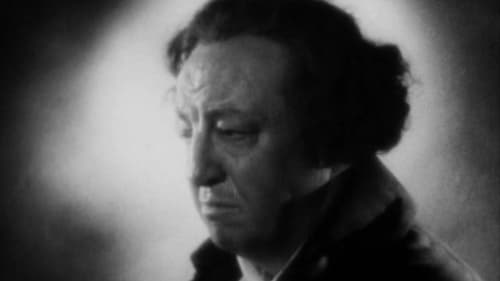
Writer
Lyrical biography of the classical composer, depicted as a romantic hero, an accursed artist.

Director
Lyrical biography of the classical composer, depicted as a romantic hero, an accursed artist.
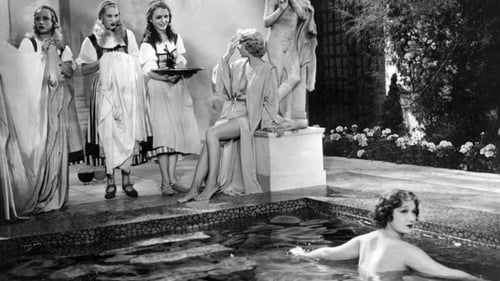
Writer
French silent film pioneer Abel Gance directs this 1935 classic about Lucrezia Borgia, her brother, Cesare. and her father, Pope Alexander VI -- one of history's most ruthless and ambitious crime families.

Director
French silent film pioneer Abel Gance directs this 1935 classic about Lucrezia Borgia, her brother, Cesare. and her father, Pope Alexander VI -- one of history's most ruthless and ambitious crime families.

Writer
A hero of the Paris streets is recruited for a conspiracy against Mazarin in the court of the King, but he reveals the subversive plot to Anne of Austria.

Director
A hero of the Paris streets is recruited for a conspiracy against Mazarin in the court of the King, but he reveals the subversive plot to Anne of Austria.
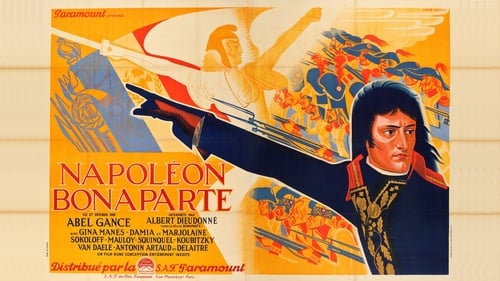
Editor
A second version of Gance's Napoléon, with sound.

Screenplay
A second version of Gance's Napoléon, with sound.

Saint-Just
A second version of Gance's Napoléon, with sound.

Director
A second version of Gance's Napoléon, with sound.

Screenplay

Director

Director
Alexandre Dumas' romantic novel Lady of the Camelias (more popularly known as Camille) was filmed twice in 1953, first in Argentina, then in France. The Argentine film was heavily modernized, while the French version returns to Dumas' 19th-century milieu. Micheline Presle is excellent as Marguerite, the gorgeous courtesan who flits from man to man until she finds true love in the form of the much-younger Armand (Rolande Alexandre). Though he is willing to marry her despite her past, she is persuaded to forsake him, lest his reputation be ruined. The story then wends its way towards its famous tragic finale, as the consumptive Marguerite is permitted a few brief moments of happiness before her flame is permanently extinguished. Advertised as the seventh version of the Dumas classic, La Dame aux Camelias was certainly not the last.

Director
Didier Méreuil, affectionately called Poliche, is in love with Rosine, a beautiful girl, so he does everything to please her. She does not love him, and accepts a seductive airplane pilot who proposes to her. One day, she discovers that the funny man is just a front behind which there is a serious Didier. She will try to make up and live with him - but the gap between them is already too large.
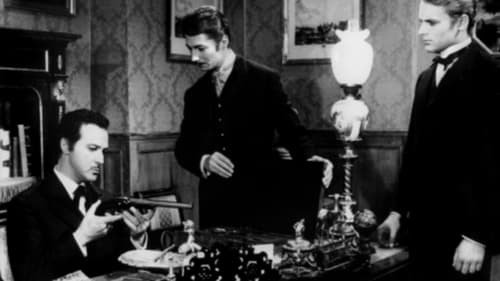
Screenplay
A young noblewoman is unhappy about needing to marry the village ironmaster for financial reasons, but later comes to appreciate her husband.

Writer
One of the most popular melodrama films directed by Abel Gance. A paranoide, fanatical and obsessively jealous husband obducts his own son to bully his wife.

Director
One of the most popular melodrama films directed by Abel Gance. A paranoide, fanatical and obsessively jealous husband obducts his own son to bully his wife.
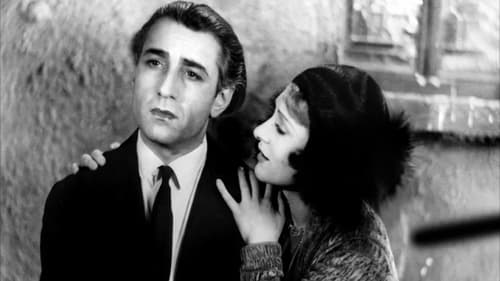
Director
The plot concerns a comet hurling toward Earth on a collision course and the different reactions to people on the impending disaster.

Jean Novalic
The plot concerns a comet hurling toward Earth on a collision course and the different reactions to people on the impending disaster.

Screenplay
The plot concerns a comet hurling toward Earth on a collision course and the different reactions to people on the impending disaster.

himself
An 18-minute silent documentary on the making of the 1931 Abel Gance directed film, "La Fin Du Monde".

Story
Napoleon at Saint Helena (German: Napoleon auf Sankt Helena) is a 1929 German silent historical film directed by Lupu Pick and starring Werner Krauss, Hanna Ralph and Albert Bassermann. The film depicts the final years of Napoleon between 1815 and 1821 during his period of exile on the British Atlantic island of Saint Helena following his defeat at Waterloo.
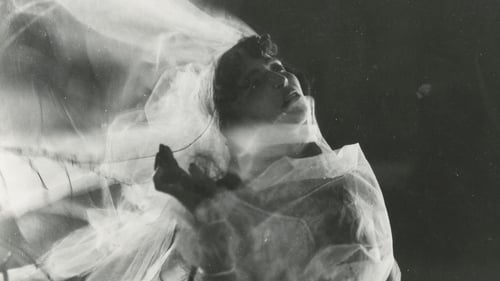
A stranger called Allan goes to the House of Usher. He is the sole friend of Roderick Usher, who lives in the eerie house with his sick wife Madeleine. When she dies, Roderick does not accept her death, and in the dark night, Madeleine returns.

Director
Marines et cristeaux is a silent film from 1928
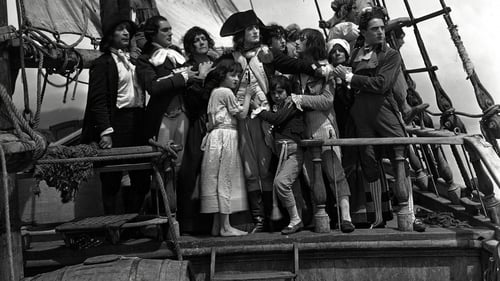
Editor
나폴레옹의 어린 소년 시절, 사관학교에서 천재적인 용병술로 전쟁 놀이를 승리로 이끄는 에피소드를 효과적인 접사와 이중 인화 미쟝센으로 인상 깊게 묘사하는 장면에서 영화는 시작 된다. 나폴레옹의 고향이자 프랑스, 영국, 이탈리아, 스페인의 접점이기에 늘 국제적으로 쟁점이 됐던 작은 섬 코르시카에서의 성장 과정을 거쳐 쉬이 현실과 타협하지 않는 과감성, 프랑스를 조국으로 인지하면서 생겨난 애국심과 민족주의적 성향, 정확한 판단력과 기회를 놓치지 않는 결단력으로 격변기 프랑스의 동력으로 자리매김 되기까지 나폴레옹의 영웅적, 인간적 내면 세계를 깊이 있게 묘사한다. 그 뿐 아니라 프랑스 혁명, 1793년 영국-이탈리아-스페인 연합군과의 트론 전쟁, 당통의 사형, 로베스 삐에르의 공포정치와 공화제 폭정에 고통받는 민중들, 정치 역학의 소용돌이에서 부침을 거듭하는 나폴레옹의 역경과 국민공회에 의한 최고 사령관 추대, 그의 처 죠세핀이라는 인물의 조망까지 당대의 상황을 아벨 강스는 탁월하게 담아냈다.

Writer
나폴레옹의 어린 소년 시절, 사관학교에서 천재적인 용병술로 전쟁 놀이를 승리로 이끄는 에피소드를 효과적인 접사와 이중 인화 미쟝센으로 인상 깊게 묘사하는 장면에서 영화는 시작 된다. 나폴레옹의 고향이자 프랑스, 영국, 이탈리아, 스페인의 접점이기에 늘 국제적으로 쟁점이 됐던 작은 섬 코르시카에서의 성장 과정을 거쳐 쉬이 현실과 타협하지 않는 과감성, 프랑스를 조국으로 인지하면서 생겨난 애국심과 민족주의적 성향, 정확한 판단력과 기회를 놓치지 않는 결단력으로 격변기 프랑스의 동력으로 자리매김 되기까지 나폴레옹의 영웅적, 인간적 내면 세계를 깊이 있게 묘사한다. 그 뿐 아니라 프랑스 혁명, 1793년 영국-이탈리아-스페인 연합군과의 트론 전쟁, 당통의 사형, 로베스 삐에르의 공포정치와 공화제 폭정에 고통받는 민중들, 정치 역학의 소용돌이에서 부침을 거듭하는 나폴레옹의 역경과 국민공회에 의한 최고 사령관 추대, 그의 처 죠세핀이라는 인물의 조망까지 당대의 상황을 아벨 강스는 탁월하게 담아냈다.

Director
나폴레옹의 어린 소년 시절, 사관학교에서 천재적인 용병술로 전쟁 놀이를 승리로 이끄는 에피소드를 효과적인 접사와 이중 인화 미쟝센으로 인상 깊게 묘사하는 장면에서 영화는 시작 된다. 나폴레옹의 고향이자 프랑스, 영국, 이탈리아, 스페인의 접점이기에 늘 국제적으로 쟁점이 됐던 작은 섬 코르시카에서의 성장 과정을 거쳐 쉬이 현실과 타협하지 않는 과감성, 프랑스를 조국으로 인지하면서 생겨난 애국심과 민족주의적 성향, 정확한 판단력과 기회를 놓치지 않는 결단력으로 격변기 프랑스의 동력으로 자리매김 되기까지 나폴레옹의 영웅적, 인간적 내면 세계를 깊이 있게 묘사한다. 그 뿐 아니라 프랑스 혁명, 1793년 영국-이탈리아-스페인 연합군과의 트론 전쟁, 당통의 사형, 로베스 삐에르의 공포정치와 공화제 폭정에 고통받는 민중들, 정치 역학의 소용돌이에서 부침을 거듭하는 나폴레옹의 역경과 국민공회에 의한 최고 사령관 추대, 그의 처 죠세핀이라는 인물의 조망까지 당대의 상황을 아벨 강스는 탁월하게 담아냈다.

Louis Antoine Léon de Saint-Just
나폴레옹의 어린 소년 시절, 사관학교에서 천재적인 용병술로 전쟁 놀이를 승리로 이끄는 에피소드를 효과적인 접사와 이중 인화 미쟝센으로 인상 깊게 묘사하는 장면에서 영화는 시작 된다. 나폴레옹의 고향이자 프랑스, 영국, 이탈리아, 스페인의 접점이기에 늘 국제적으로 쟁점이 됐던 작은 섬 코르시카에서의 성장 과정을 거쳐 쉬이 현실과 타협하지 않는 과감성, 프랑스를 조국으로 인지하면서 생겨난 애국심과 민족주의적 성향, 정확한 판단력과 기회를 놓치지 않는 결단력으로 격변기 프랑스의 동력으로 자리매김 되기까지 나폴레옹의 영웅적, 인간적 내면 세계를 깊이 있게 묘사한다. 그 뿐 아니라 프랑스 혁명, 1793년 영국-이탈리아-스페인 연합군과의 트론 전쟁, 당통의 사형, 로베스 삐에르의 공포정치와 공화제 폭정에 고통받는 민중들, 정치 역학의 소용돌이에서 부침을 거듭하는 나폴레옹의 역경과 국민공회에 의한 최고 사령관 추대, 그의 처 죠세핀이라는 인물의 조망까지 당대의 상황을 아벨 강스는 탁월하게 담아냈다.

Producer
Max accepts a wager that he cannot remain in a haunted castle for one hour (11 PM to midnight) without crying for help. As soon as he arrives he encounters strange and nightmarish visions, but he is nevertheless on the verge of winning the bet when a phone-call brings startling news.

Writer
Max accepts a wager that he cannot remain in a haunted castle for one hour (11 PM to midnight) without crying for help. As soon as he arrives he encounters strange and nightmarish visions, but he is nevertheless on the verge of winning the bet when a phone-call brings startling news.

Director
Max accepts a wager that he cannot remain in a haunted castle for one hour (11 PM to midnight) without crying for help. As soon as he arrives he encounters strange and nightmarish visions, but he is nevertheless on the verge of winning the bet when a phone-call brings startling news.
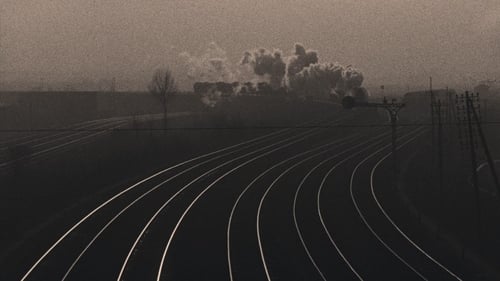
Producer
열차 기관사인 시지프는 전복사고 현장에서 고아 소녀 노르마를 발견하고 몰래 집으로 데려온다. 엄마 없이 자란 아들 엘리와 노르마를 함께 키우려던 그의 욕심은 비극을 낳는다. 어느 날 시지프는 노르마에 관한 비밀을 고위 관료인 에르상에게 털어놓는데, 노르마를 탐한 에르상은 비밀을 빌미 삼아 그녀와의 결혼을 요구한다. 어느새 노르마를 남자로서 흠모했던 시지프는 힘겹게 그녀를 떠나보내고, 노르마에 대한 애정을 간직해온 엘리 또한 사실을 알게 된 뒤 좌절감에 빠진다. 정작 노르마 자신은 비밀을 모르는 가운데, 한 여자를 사랑한 세 남자는 지옥 같은 현실에서 벗어나지 못한다.

Editor
열차 기관사인 시지프는 전복사고 현장에서 고아 소녀 노르마를 발견하고 몰래 집으로 데려온다. 엄마 없이 자란 아들 엘리와 노르마를 함께 키우려던 그의 욕심은 비극을 낳는다. 어느 날 시지프는 노르마에 관한 비밀을 고위 관료인 에르상에게 털어놓는데, 노르마를 탐한 에르상은 비밀을 빌미 삼아 그녀와의 결혼을 요구한다. 어느새 노르마를 남자로서 흠모했던 시지프는 힘겹게 그녀를 떠나보내고, 노르마에 대한 애정을 간직해온 엘리 또한 사실을 알게 된 뒤 좌절감에 빠진다. 정작 노르마 자신은 비밀을 모르는 가운데, 한 여자를 사랑한 세 남자는 지옥 같은 현실에서 벗어나지 못한다.

Writer
열차 기관사인 시지프는 전복사고 현장에서 고아 소녀 노르마를 발견하고 몰래 집으로 데려온다. 엄마 없이 자란 아들 엘리와 노르마를 함께 키우려던 그의 욕심은 비극을 낳는다. 어느 날 시지프는 노르마에 관한 비밀을 고위 관료인 에르상에게 털어놓는데, 노르마를 탐한 에르상은 비밀을 빌미 삼아 그녀와의 결혼을 요구한다. 어느새 노르마를 남자로서 흠모했던 시지프는 힘겹게 그녀를 떠나보내고, 노르마에 대한 애정을 간직해온 엘리 또한 사실을 알게 된 뒤 좌절감에 빠진다. 정작 노르마 자신은 비밀을 모르는 가운데, 한 여자를 사랑한 세 남자는 지옥 같은 현실에서 벗어나지 못한다.

Director
열차 기관사인 시지프는 전복사고 현장에서 고아 소녀 노르마를 발견하고 몰래 집으로 데려온다. 엄마 없이 자란 아들 엘리와 노르마를 함께 키우려던 그의 욕심은 비극을 낳는다. 어느 날 시지프는 노르마에 관한 비밀을 고위 관료인 에르상에게 털어놓는데, 노르마를 탐한 에르상은 비밀을 빌미 삼아 그녀와의 결혼을 요구한다. 어느새 노르마를 남자로서 흠모했던 시지프는 힘겹게 그녀를 떠나보내고, 노르마에 대한 애정을 간직해온 엘리 또한 사실을 알게 된 뒤 좌절감에 빠진다. 정작 노르마 자신은 비밀을 모르는 가운데, 한 여자를 사랑한 세 남자는 지옥 같은 현실에서 벗어나지 못한다.

Producer
Directed by Robert Boudrioz.
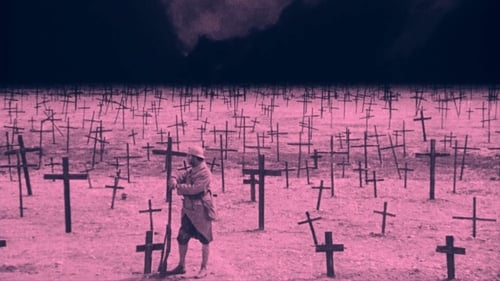
Editor
1914년 프랑스 남부 프로방스, 주민들은 독일과의 전쟁 선포를 환영한다. 그중 질투심 많고 폭력적인 성향인 프랑수아 로린은 에디트와 결혼하지만, 그녀가 시인 장 디아즈와 불륜 관계라고 의심해 그녀를 로렌 주로 보낸다. 하지만 그녀는 그곳에서 독일군에게 강간당한다.
제1차 세계대전을 배경으로 한 비극적 드라마이자 몇몇 평론가는 반전 영화라고 평하기도 한다. 감독인 아벨 강스는 1920년대 프랑스 인상주의 영화 감독들 중 가장 중요한 인물이자 플래시백 등 무성영화의 전형적인 연출 스타일을 만들었다.

Screenplay
1914년 프랑스 남부 프로방스, 주민들은 독일과의 전쟁 선포를 환영한다. 그중 질투심 많고 폭력적인 성향인 프랑수아 로린은 에디트와 결혼하지만, 그녀가 시인 장 디아즈와 불륜 관계라고 의심해 그녀를 로렌 주로 보낸다. 하지만 그녀는 그곳에서 독일군에게 강간당한다.
제1차 세계대전을 배경으로 한 비극적 드라마이자 몇몇 평론가는 반전 영화라고 평하기도 한다. 감독인 아벨 강스는 1920년대 프랑스 인상주의 영화 감독들 중 가장 중요한 인물이자 플래시백 등 무성영화의 전형적인 연출 스타일을 만들었다.

Director
1914년 프랑스 남부 프로방스, 주민들은 독일과의 전쟁 선포를 환영한다. 그중 질투심 많고 폭력적인 성향인 프랑수아 로린은 에디트와 결혼하지만, 그녀가 시인 장 디아즈와 불륜 관계라고 의심해 그녀를 로렌 주로 보낸다. 하지만 그녀는 그곳에서 독일군에게 강간당한다.
제1차 세계대전을 배경으로 한 비극적 드라마이자 몇몇 평론가는 반전 영화라고 평하기도 한다. 감독인 아벨 강스는 1920년대 프랑스 인상주의 영화 감독들 중 가장 중요한 인물이자 플래시백 등 무성영화의 전형적인 연출 스타일을 만들었다.

Writer
Composer Enrid Damor knows nothing of the past life of his new wife Eve Dinant : she lived as a debauchee with an adventurer, Fred Ryce. Fred Ryce meets Damor's daughter, Claire, and tries to marries her. He blackmails Eve. Enric learns something about her and Fred and composes a symphony to express his pain... The Tenth Symphony is considered the first major film of the Impressionist movement.

Director
Composer Enrid Damor knows nothing of the past life of his new wife Eve Dinant : she lived as a debauchee with an adventurer, Fred Ryce. Fred Ryce meets Damor's daughter, Claire, and tries to marries her. He blackmails Eve. Enric learns something about her and Fred and composes a symphony to express his pain... The Tenth Symphony is considered the first major film of the Impressionist movement.

Writer
Film by Abel Gance.

Director
Film by Abel Gance.

Writer
A journalist attempt to stop a mysterious criminal : "Barbe rousse".

Director
A journalist attempt to stop a mysterious criminal : "Barbe rousse".

Writer
Hardly one of French filmmaker Abel Gance's masterpieces, The Torture of Silence nevertheless has more dramatic and psychological value than your average romantic-triangle tale. Simply put, the film concerns a doctor, his wife, and his brother. The doctor, a specialist in pediatrics, has no time for his wife Marthe. She seeks solace in the arms of his brother. Unable to keep up the charade, Marthe attempts to shoot herself, but it is her lover who is mortally wounded.

Director
Hardly one of French filmmaker Abel Gance's masterpieces, The Torture of Silence nevertheless has more dramatic and psychological value than your average romantic-triangle tale. Simply put, the film concerns a doctor, his wife, and his brother. The doctor, a specialist in pediatrics, has no time for his wife Marthe. She seeks solace in the arms of his brother. Unable to keep up the charade, Marthe attempts to shoot herself, but it is her lover who is mortally wounded.

Writer
A young girl marries a financier knowing he has only a short time to live, so she can inherit his money.Her lover, who has made a fortune away in America, returns and wants to hasten the financier's death.

Director
A young girl marries a financier knowing he has only a short time to live, so she can inherit his money.Her lover, who has made a fortune away in America, returns and wants to hasten the financier's death.

Writer
Hopson, a prestigious scientist, studies the effect of snake venom to cure many diseases of mankind. His son enlists in the army when the Great War breaks out. A series of circumstances will lead the scientist to change his way of thinking about values and principles that until then he had as immovable.

Director
Hopson, a prestigious scientist, studies the effect of snake venom to cure many diseases of mankind. His son enlists in the army when the Great War breaks out. A series of circumstances will lead the scientist to change his way of thinking about values and principles that until then he had as immovable.

Writer
Le fou de la falaise is a 1916 silent film

Director
Le fou de la falaise is a 1916 silent film

Writer
Le périscope is a 1928 film

Director
Le périscope is a 1928 film

Writer
Un drame au château d'Acre is a 1915 silent short

Director
Un drame au château d'Acre is a 1915 silent short

Writer
Guards are posted to protect various important figures who are threatened with a phone call, that by 10 p.m. the following night they will be dead.Somehow they still meet their deaths, despite the protection.

Director
Guards are posted to protect various important figures who are threatened with a phone call, that by 10 p.m. the following night they will be dead.Somehow they still meet their deaths, despite the protection.

Writer
L'héroïsme de Paddy is a 1915 silent film

Director
L'héroïsme de Paddy is a 1915 silent film

Writer
A scientist develops a powder that he believes will have the effect of distorting reality for those who take it. To test its effect tries it out on his assistant, a dog, himself and two young couples.

Director
A scientist develops a powder that he believes will have the effect of distorting reality for those who take it. To test its effect tries it out on his assistant, a dog, himself and two young couples.

Writer
L'infirmière is a 1914 silent film.

Screenplay
A mad sculptor, searching for the perfect realization of "the mask of horror", places himself in front of a mirror after smearing blood over himself with the glass of an oil lamp. He then swallows a virulent poison to observe the effects of pain.

Director
A mad sculptor, searching for the perfect realization of "the mask of horror", places himself in front of a mirror after smearing blood over himself with the glass of an oil lamp. He then swallows a virulent poison to observe the effects of pain.

Writer

Writer
La digue is a 1911 silent film

Director
La digue is a 1911 silent film

Writer

Writer
The incidents in this picture took place in 1803-4, when Napoleon was First Consul. In August, 1803, Napoleon discovered a conspiracy hatched in England in which three Englishmen were implicated; The aim of the conspirators was to restore to the throne of France one of the Bourbons.

Molière jeune
A film about the life of Molière (1622-1673).

Writer
A film about the life of Molière (1622-1673).

Writer
Le portrait de Mireille is a 1909 short film














